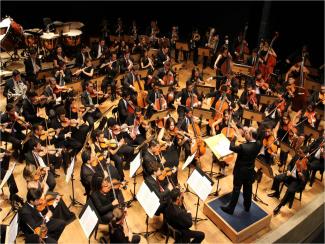


An updated portrayal of musical life in Brazil
The last seven years have witnessed many changes in Brazil’s classical music scene. Some sectors have developed considerably, others have changed little, and others still have stagnated at the same levels as the last decade.
One of the areas that has seen the greatest change is music education. This is partly because of the national debate about the subject, which was galvanised after federal law 11769 was passed on 18 August 2008, determining that in the following three years music should become a mandatory component of primary and secondary education at public and private schools, and also in response to the emergence in different parts of the country of music education and social inclusion programmes, transforming Brazil’s musical landscape. Another very encouraging change has been the progressive decentralisation of cultural actions in the country, with the emergence and strengthening of music establishments in states other than São Paulo and Rio de Janeiro, which now have a variety of orchestras and music festivals. New education programmes have also been created, yielding excellent results and opening up new prospects for the spread of music and music education and new opportunities for professionals.
Meanwhile, many Brazilian orchestras seem to be stuck in the nineteenth century. Their members, whose roles are still greatly underrated, are excluded from artistic decision-making processes, which are more often than not left exclusively to a conductor who was not even chosen by them in the first place. This central figure uses a variety of political and marketing skills to direct the whole artistic process of the orchestra single-handedly. The hierarchical and authoritarian nature of this kind of organisational models leaves no room for debate. The extremely limited involvement of the musicians sparks tensions that inevitably impact on the artistic quality of the work. Creativity becomes a peripheral part of the process, often resulting in extremely conservative repertoire choices. Concert seasons are organised to be as risk-free as possible, and contemporary music rarely makes an appearance on the programmes of the country’s biggest orchestras, which continue to perform traditional works from the classical repertoire rather than seizing the challenge of building a new audience for music from contemporary times.
However, this problem also overlaps with the role of education itself, since young musicians are surely the ones who will ultimately spearhead change. Exchanges between Brazilian conservatories and orchestras and their international counterparts need to be strengthened. Efforts in this respect are still few and far between, because few institutional opportunities are created to help young Brazilian musicians study abroad and encourage experienced musicians from abroad to spend time in Brazil. When exchanges of this kind do take place, they prove important for the young musicians involved to improve their technique. However, the development of leaders, especially to manage Brazil’s musical institutions, remains a big challenge for the coming years.
Continue reading Mapping Brazil - Classical Music: Music Education